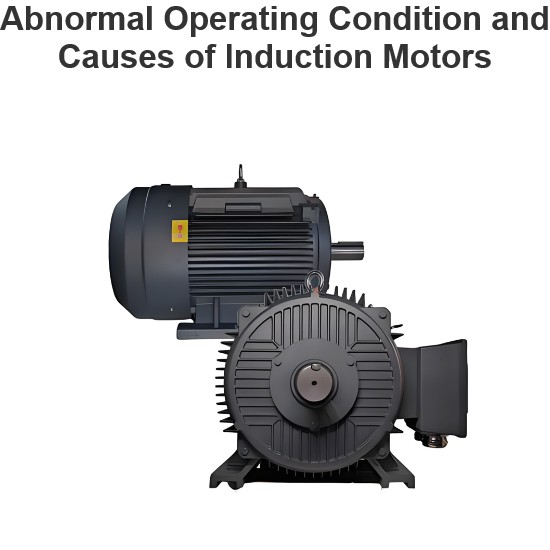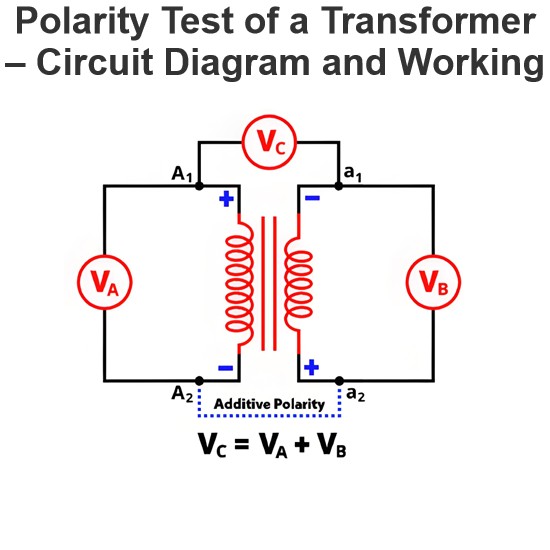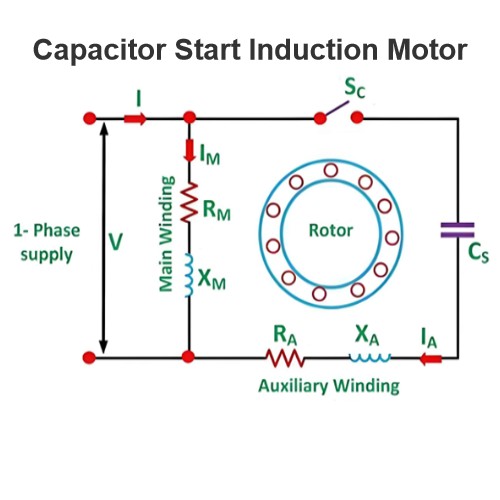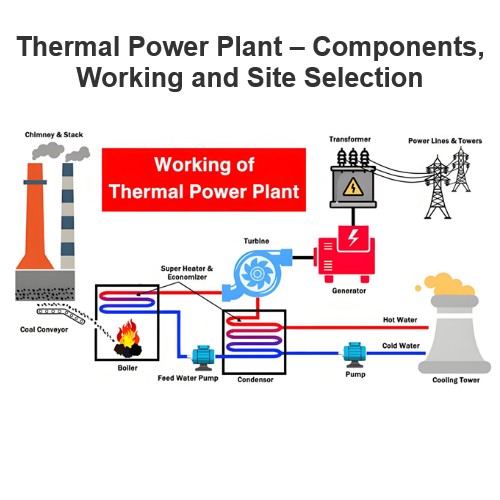Why are starters used in a 3-phase induction motor?
Three-phase induction motors (Three-Phase Induction Motors) typically use starters (Starters) to control their starting process. The use of starters has several important reasons, which involve protecting the motor, optimizing starting performance, and ensuring system safety. Here is a detailed explanation:
1. Reduce Starting Current
High Starting Current:
When a three-phase induction motor starts, it needs to generate sufficient torque to overcome static inertia, which results in a very high starting current. The starting current can be 6 to 8 times the rated current, or even higher.
Such high starting currents can cause significant stress on the power grid, leading to voltage drops that affect the operation of other devices.
Role of Starters:
Starters can limit the starting current, allowing it to gradually increase to the rated value, thus reducing the impact on the power grid.
Common methods to limit starting current include star-delta starters (Star-Delta Starter), auto-transformer starters (Auto-transformer Starter), and soft starters (Soft Starter).
2. Increase Starting Torque
Insufficient Starting Torque:
Some applications require high starting torque, such as heavy-load starting of machinery. Ordinary direct-on-line starting methods may not provide sufficient starting torque.
Role of Starters:
Special starters (like star-delta starters and auto-transformer starters) can provide higher starting torque during the initial stages, helping the motor start smoothly.
Soft starters can optimize starting torque by adjusting voltage and frequency.
3. Protect the Motor
Overload Protection:
Starters typically come with overload protection devices that cut off the power if the motor becomes overloaded, preventing overheating or damage.
Overload protection devices can be set to trip at specific current thresholds, ensuring the motor operates within safe limits.
Short-Circuit Protection:
Starters also provide short-circuit protection, preventing motor damage in case of a short circuit.
Short-circuit protection devices can quickly disconnect the power to prevent excessive current from burning out the motor.
4. Optimize Starting Performance
Smooth Starting:
Starters can enable the motor to start smoothly, reducing mechanical shock and vibration during startup.
Smooth starting helps extend the life of the motor and connected equipment.
Precise Control:
Modern starters (such as soft starters and variable frequency drives) can provide precise starting control, adjusting startup parameters based on load characteristics.
This precise control can optimize the startup process and improve overall system performance.
5. System Safety
Operational Safety:
Starters provide a safe operational interface, allowing operators to control the motor during startup and shutdown.
Starters often include indicator lights and switches to help operators monitor the motor's status.
Prevent Misoperation:
Starters can prevent misoperation, ensuring the motor starts and stops under the correct conditions.
For example, interlocks can prevent the motor from being restarted before it has completely stopped.
Common Types of Starters
Star-Delta Starter (Star-Delta Starter):
Initially, the motor is connected in a star configuration, which reduces the starting current.
Once the motor reaches a certain speed, it switches to a delta configuration to provide the torque required for normal operation.
Auto-transformer Starter (Auto-transformer Starter):
An auto-transformer is used to reduce the starting voltage, thereby reducing the starting current.
After startup, the motor switches to full voltage operation.
Soft Starter (Soft Starter):
By regulating voltage and frequency, soft starters can start the motor smoothly, reducing starting current and mechanical shock.
They can adjust startup parameters based on load characteristics, providing flexible control.
Variable Frequency Drive (VFD):
VFDs not only control the startup process but can also regulate the motor's speed and torque during operation.
They are suitable for applications requiring precise speed control.
Summary
The primary reasons for using starters with three-phase induction motors are to reduce starting current, increase starting torque, protect the motor, optimize starting performance, and ensure system safety. Starters control the motor's startup process through various methods, ensuring the motor operates safely and efficiently. We hope the above information is helpful. If you have any more questions, feel free to ask.
The Electricity Encyclopedia is dedicated to accelerating the dissemination and application of electricity knowledge and adding impetus to the development and innovation of the electricity industry.













